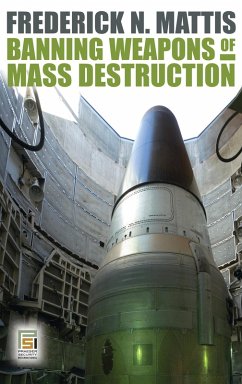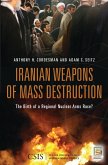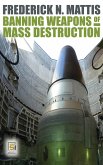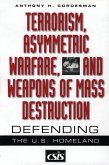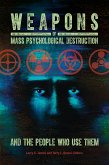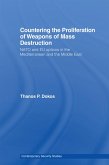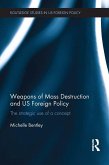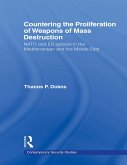The threat of weapons of mass destruction is still viable, and unless proper motions are made to prohibit this, global safety is still at risk. Prior arms control agreements have moved humanity within striking distance of global prohibition, yet these weapons of mass destruction remain. This enlightening work discusses original principles for a treaty banning nuclear and chem-bio weapons worldwide. Mattis argues that a proposed new nuclear treaty, replacing today's inadequate 1968 Non-Proliferation Treaty, would demand unanimous accession by States which must be achieved before such a treaty enters into force. By asking essential questions, and offering value-creative proposals for nuclear treaty provisions, this work offers a clear path to the daylight of worldwide weapons of mass destruction prohibition. Not only is global safety threatened by the use of nuclear and chem-bio weapons, but more inclusively, today, society is at risk of nuclear weapons being stolen or acquired by terrorists for purposes of destruction. This risk lends to a necessary treaty that would require down-blending of highly enriched uranium to low-enriched uranium to eliminate this prospect. The heart of this work is its delineation of necessary elements for a nuclear ban treaty that addresses inevitable concerns of all States, especially today's nine nuclear weapon States. Mattis addresses 17 major proposed treaty provisions that include: how to suitably ascertain "unanimous accession" by states to a nuclear ban treaty (unanimity being a condition for entry into force); requirement that states be signatories to the current chemical and biological weapons bans [CWC/BWC] prior to signing a nuclear ban treaty; "non-withdrawal" by states from the treaty once it is in effect; necessary and new verification elements for banning nuclear weapons; the establishment, via nuclear ban provision, of "non-withdrawal" from the CWC and BWC. By asking essential questions, and offering illuminating proposals for nuclear ban treaty provisions, the work offers a path to a safer future through worldwide prohibition of weapons of mass destruction.
Bitte wählen Sie Ihr Anliegen aus.
Rechnungen
Retourenschein anfordern
Bestellstatus
Storno

